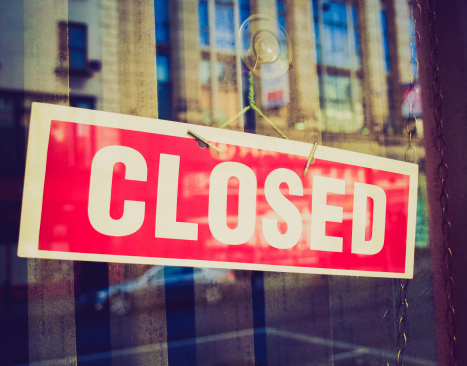In the wake of the U.S. Supreme Court’s (SCOTUS) decision in King v. Burwell, Republican state legislators in states that formed state health insurance exchanges during the implementation of Obamacare are actively seeking to transfer those operations to the federal government.
With federal contributions for states’ implementation of Obamacare beginning to run out, these lawmakers argue operating a state health insurance exchange is a luxury their taxpayers can’t afford.
No more federal grants were awarded after January 1, 2015, so all state health insurance exchanges will bear the full cost beginning January 1, 2016.
Double Whammy
The combined impact of SCOTUS’ decision and funding termination on state-run exchanges is likely to be profound, especially with so many of them already being in financial trouble, says Dr. Doug Perednia, author of Overhauling America’s Healthcare Machine.
“As of May 2015, roughly half of the 17 exchanges established by states were in financial trouble,” Perednia said. “With the subsidies removed, there is little or no reason for states to continue operating their own exchanges, and we will see many, if not all of them, disappear over time.”
‘Wise States’ Stayed Out
Twila Brase, president of the Citizens’ Council for Health Freedom, says the states that did not set up health insurance exchanges will be able to get premium subsidies from the federal government through Healthcare.gov because of the Supreme Court decision.
“These states dodged the bullet,” says Brase. “They were the wise states. They saw the expensive trap. They saw the federal control over the state exchange and said no.”
States without exchanges have no doubt seen how difficult it was for those with state exchanges, Brase says.
Brase cites several examples. Oregon wasted $300 million, never got its exchange running, and switched to Healthcare.gov. Hawaii started shutting down its state exchange before the Supreme Court ruled. Nevada switched to the federal exchange. Colorado added new fees to try to cover the cost.
“No state, no legislature, and no governor will likely even consider the idea [of opening a state exchange now,]” Brase said. “Not creating an exchange improves the state budget, lets the state use those dollars for more pressing priorities, and prevents the lawsuits, technological snafus, bad press, and defeat other states have faced,” says Brase. “I expect many states will terminate their state exchanges.”
Minnesota Exchange Disaster
The Minnesota exchange just reported a backlog of 180,000 reenrollments caused by technical problems, Brase says.
“This may be the end of MNsure, the state’s health insurance exchange,” Brase said. “Come next session, I expect Minnesota to consider a repeal of the MNsure exchange and a switch to Healthcare.gov.
“I expect much or all of the entire exchange enterprise will be on the shoulders of the federal government until the law is repealed,” Brase said. “Democrats in the U.S. House wanted a national exchange. It appears that’s what they’re going to get, although it’s still not fully functional and the funding for it may become a political football as a way to impede continued implementation of the law.”
Defaulting to Federal Exchange
The ruling in Burwell puts many of the remaining state-based exchanges on a death watch, says Josh Archambault, a senior fellow at the Foundation for Government Accountability.
“Many of the state-based exchanges have had low enrollment, so they are unlikely to be sustainable on their own,” Archambault said. “With federal taxpayer money drying up, it is likely state legislatures will eventually follow the lead of Hawaii, Nevada, and Oregon and default to Healthcare.gov. It may take a few years in a handful of states to make this move, due to ideological or political reasons, but most states are not likely to spend $50–100 million a year keeping a state-based exchange afloat at the expense of education programs, public safety, or road projects.”
Some states, have already started to discuss using even more state funds to keep their state-based exchange open, while others are considering assessing a fee on all insurance plans sold in their state. Some are even considering taxing plans not sold on the exchange in addition to those that are, Archambault says.
“If small businesses and state lawmakers wise up, this proposal will be challenged, as it raises the expense of insurance for everyone in the state unnecessarily and is in direct contradiction to the name and stated goal of the Affordable Care Act,” Archambault said.
Kenneth Artz ([email protected]) is managing editor of Health Care News.
Internet Info
Kenneth Artz, “Obamacare Subsidies Survive Supreme Court Challenge,” Heartlander, June 25, 2015: http://news.heartland.org/newspaper-article/2015/06/25/obamacare-subsidies-survive-supreme-court-challenge





